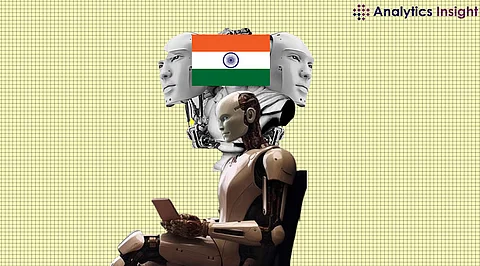

Bengaluru, long dubbed India’s Silicon Valley, has emerged as a global contender for the title of AI capital. At the Bengaluru Tech Summit 2024, Karnataka’s IT Minister Priyank Kharge declared the city fifth among the world's top 50 AI hubs, a ranking bolstered by its 57% AI adaptability rate, outpacing the U.S. at 24% and Germany.
This rise is a result of a powerful combination of talent, infrastructure, and ambition that makes Bengaluru a nerve center for AI innovation. But what drives this change, and can it really be said to be world-leading? This analysis examines the principal drivers of Bengaluru's AI ascendance.
Bengaluru's advantage starts with its human capital. With institutions such as the Indian Institute of Science (IISc) and several IITs calling the city home, thousands of engineers graduate every year, many of them having imbibed AI and machine learning. A NASSCOM-Zinnov report pegs Bengaluru as host to 7,200 - 7,700 startups, with AI-focused ventures growing nearly 50% since 2017. This talent isn’t just local; migration from across India and abroad has swelled the ranks, drawn by job opportunities at 837 Global Capability Centers (GCCs) researching for firms in the U.S. and Europe.
The population dividend is realized. India has a young and technologically literate workforce, with a median age of 28, and Bengaluru realizes the potential of this vibrancy in AI. The city-headquartered Infosys and Wipro have moved from being IT services firms to offering AI solutions, riding on this talent pool to create solutions like generative models and predictive analytics.
Capital flows have cemented Bengaluru’s AI ascent. In 2018 alone, startups here raised $529.52 million, per Analytics India Magazine, with big-ticket deals like SoftBank’s $300 million into Automation Anywhere. Fast forward to 2025, and the city accounts for $186 billion of India’s $384 billion unicorn valuation, per Kharge’s summit remarks. This cash fuels AI experimentation; think of Embibe’s education bots or Manthan’s retail forecasting with Maya, pushing boundaries beyond mere outsourcing.
This growth is supported by infrastructure. Electronic City, Bagmane Tech Park, and Manyata Embassy Business Park are homes to tech heavyweights and start-ups, with 27 centers of excellence ranging from agriculture to aerospace and AI innovation being created. A new GCC policy for the state seeks to welcome 500 more centers and gain $50 billion in revenue by 2029.
Historically an IT outsourcing hub, Bengaluru has shed that skin. The 1980s saw Texas Instruments plant roots, sparking a software boom, but today’s focus is on AI-driven products. Pixxel's microsatellites and Wysa's mental health chatbots are classic examples of this transition: homegrown solutions catering to the world. At the 2023 Global AI Conclave, Kharge pointed towards this transformation: from call centers to R&D, now disruption. The World Economic Forum ranked Bengaluru the world's most dynamic city in 2017 and 2019 as a testament to this shift.
This isn’t blind hype. AI adaptability here outstrips Western peers, driven by necessity, 270 million schoolchildren need scalable education tools, per LEAD’s Smita Deorah, and AI fills teacher gaps. Still, skeptics question if this rush risks oversaturation, with every startup claiming AI expertise, thus diluting true innovation.
Bengaluru’s AI story isn’t just India’s, it’s global. GCCs here don’t just serve Karnataka; they innovate for headquarters worldwide, from Cisco’s network AI to Bosch’s automotive systems. The Global Innovation Alliance links startups to 33 countries, per Kharge, offering market access and funding. This external look is juxtaposed with internal strengths: a multiculturally composed fabric (only 49% native-born) breeds diverse concepts, echoing Silicon Valley's melting pot.
However, world domination is not certain. San Francisco has more in-depth venture capital and established AI companies such as OpenAI, while Singapore is a slender hub. Bengaluru’s edge lies in cost, talent at 25–30% less than Western rates, per Nasscom-Deloitte, but execution matters. Slow infrastructure growth, like the metro’s two-line crawl since 2007, could sap momentum.
Bengaluru’s bid to be the AI capital rests on talent, investment, and a knack for turning local problems into global solutions. Its fifth-ranked status and flexibility mark it as a challenger, not a champion, so far. Its success depends on ramping up skills, smoothing civic ills, and remaining agile in the presence of giants. For now, the city is a shining example of what can be accomplished when aspiration converges with possibility, but the world waits to see if it can maintain the ascent.
